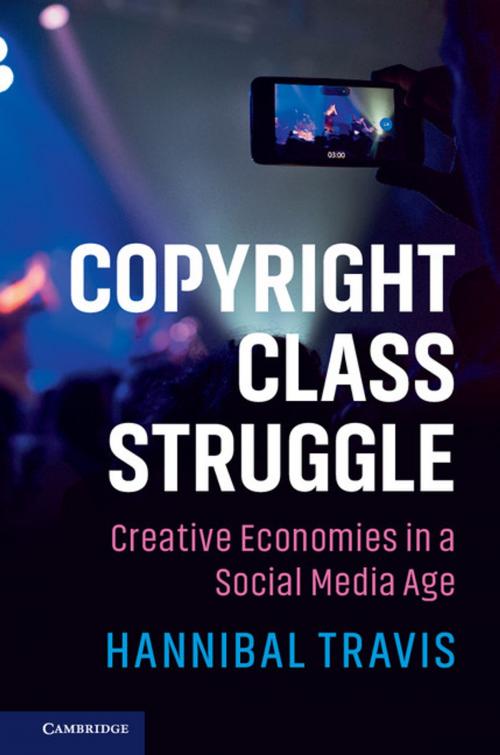Copyright Class Struggle
Creative Economies in a Social Media Age
Nonfiction, Reference & Language, Law, Intellectual Property, Business & Finance| Author: | Hannibal Travis | ISBN: | 9781108151955 |
| Publisher: | Cambridge University Press | Publication: | August 31, 2018 |
| Imprint: | Cambridge University Press | Language: | English |
| Author: | Hannibal Travis |
| ISBN: | 9781108151955 |
| Publisher: | Cambridge University Press |
| Publication: | August 31, 2018 |
| Imprint: | Cambridge University Press |
| Language: | English |
Earning an income in our time often involves ownership of or control over creative assets. Employing the law and philosophy of economics, this illuminating book explores the legal controversies that emerge when authors, singers, filmmakers, and social media barons leverage their rights into major paydays. It explores how players in the entertainment and technology sectors articulate claims to an ever-increasing amount of copyright-protected media. It then analyzes efforts to reform copyright law, in the contexts of 1) increasing the rights of creators and sellers, and 2) allocating these rights after employment and labor disputes, constitutional challenges to intellectual property law, efforts to legalize online mashups and remixes, and changes to the amount of streaming royalties paid to actors and musicians. This work should be read by anyone interested in how copyright law - and its potential reform - shapes the ownership of ideas in the social media age.
Earning an income in our time often involves ownership of or control over creative assets. Employing the law and philosophy of economics, this illuminating book explores the legal controversies that emerge when authors, singers, filmmakers, and social media barons leverage their rights into major paydays. It explores how players in the entertainment and technology sectors articulate claims to an ever-increasing amount of copyright-protected media. It then analyzes efforts to reform copyright law, in the contexts of 1) increasing the rights of creators and sellers, and 2) allocating these rights after employment and labor disputes, constitutional challenges to intellectual property law, efforts to legalize online mashups and remixes, and changes to the amount of streaming royalties paid to actors and musicians. This work should be read by anyone interested in how copyright law - and its potential reform - shapes the ownership of ideas in the social media age.















